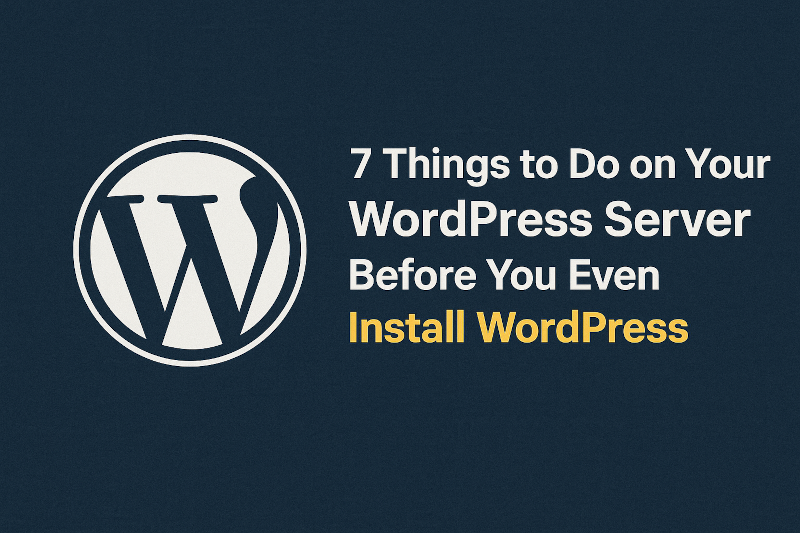Tag: hosting
-
Cloudways vs Competition: WordPress Performance Benchmarks
This report benchmarks the performance of the Cloudways Lightning and Hybrid stacks against five key competitors in the WordPress hosting space. Tests covered real-world scenarios including standard WordPress sites, WooCommerce stores, and LearnDash courses. The results confirm that Lightning improves on Hybrid, with clear gains for dynamic requests and backend operations. However, both Cloudways stacks…
-

7 Things to Do on Your WordPress Server Before You Even Install WordPress
If you’re spinning up a new server for WordPress, slow down for a second. Jumping straight into the famous 5-minute install might be tempting, but skipping the prep work can set you up for headaches later. Before WordPress ever touches your server, there are a few things you must do to lock it down, speed…
-
Cloudways Lightning vs Hybrid Stack Benchmarks
This report benchmarks the performance of the Cloudways new Lightning stack against the older Hybrid stack across a variety of real-world WordPress use cases, including WooCommerce and LearnDash. Optimized for Speed & Response TimeThe Lightning stack consistently delivers faster response times across most test cases. In uncached and write-heavy workloads, where requests bypass full-page caching…
-

A Guide to Self-Hosting Your WordPress Site: What It Takes to Take Control
The WordPress hosting landscape has been buzzing with controversy recently, causing many site owners to reconsider their reliance on third-party hosting providers. Whether it’s policy changes, pricing structures, or unexpected downtimes, there are plenty of reasons why you might want to take control of your WordPress site by self-hosting. While self-hosting isn’t a walk in…
-

WordPress & Kubernetes: Separating Key WordPress Components for Kubernetes
This is the second blog post in our WordPress & Kubernetes series. In this post you will learn about the key WordPress components, and why they need separating in different Kubernetes pods for redundancy, high availability and scalability. UPD: We’ve published a new and improved WordPress on Kubernetes guide.
-

WordPress Backend Performance Benchmarks: Cloudways Autonomous, Kinsta, WP Engine
The WordPress Backend Performance Benchmarks compared three prominent hosting providers – Cloudways Autonomous, Kinsta, and WP Engine – using a rigorous methodology. The study aimed to assess the platforms’ capabilities in handling an extensive e-commerce workload with WooCommerce. The testing environment, server configuration, and test cases were meticulously designed to simulate real-world scenarios. The focus…
-

Choosing the Right WordPress Hosting Provider: Key Considerations
Selecting the right hosting provider is a critical decision when it comes to managing your WordPress website. A reliable hosting service ensures optimal performance, security, and support for your online presence. However, with numerous options available, it’s essential to be aware of key considerations before making your choice. In this article, we will explore the…
-

WordPress & Kubernetes: Getting Started with Kubernetes
In this blog post, we’ll provide an introduction to Kubernetes, the popular container orchestration platform, and explain its benefits. We’ll also cover the basics of Kubernetes architecture and components, as well as configuration files and the kubectl command-line tool. Finally, we’ll discuss setting up a Kubernetes cluster, including choosing a hosting provider and creating a…